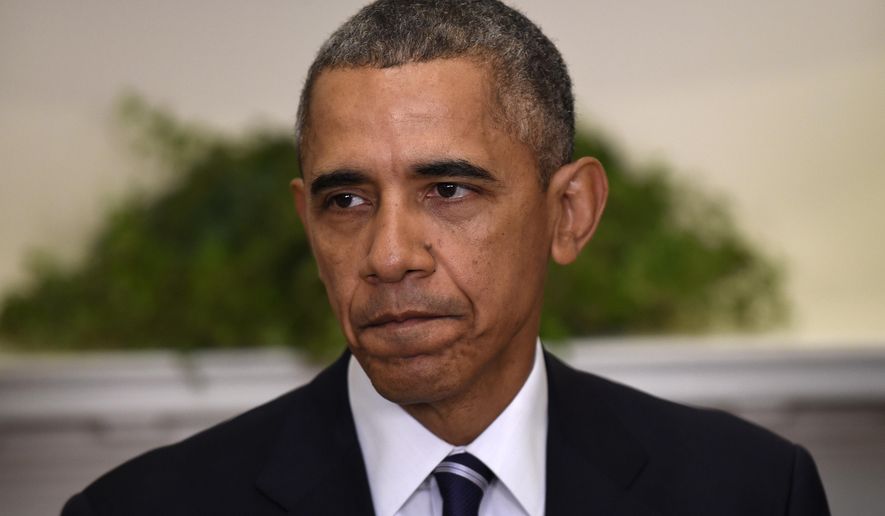Homeland Security Secretary John F. Kelly officially revoked President Obama’s 2014 attempt to broaden his previous deportation amnesty for Dreamers, which had been held up by federal courts for more than two years.
The decision leaves in place the 2012 temporary amnesty for more than 780,000 Dreamers but officially ends immigrant rights groups’ hopes of expanding that policy to as many as 4 million more illegal immigrants.
“After consulting with the attorney general, and in the exercise of my direction in establishing national immigration enforcement policies and priorities, I hereby rescind the November 20, 2014 memorandum,” Mr. Kelly said in his memo.
The department explained the decision as a legal matter, saying that “there is no credible path forward to litigate the currently enjoined policy.”
Mr. Obama’s move in 2014 was among the most controversial of his eight-year tenure.
After years of saying he didn’t have the power to unilaterally grant such a broad amnesty, and after watching his party get clobbered in the 2014 congressional elections, he reversed himself and decided he did have the power.
He said parents of U.S. citizens or legal permanent residents who had been in the country since 2010 and who had kept relatively clean criminal records could apply for the amnesty, which granted a two-year stay of deportation and a work permit, entitling them to driver’s licenses and other taxpayer benefits such as tax credits from the IRS. The policy also expanded the 2012 amnesty by lifting the age cap on Dreamers.
Texas led 25 other states in suing, arguing that Mr. Obama had overstepped his powers.
First a federal district judge in Texas ruled in favor of the states, issuing an injunction and arguing that the president had broken procedural laws by making such a big change without following the normal rule-making process.
Then a federal appeals court upheld the injunction, saying the president broke procedural rules as well as the Immigration and Nationality Act. The judges said they didn’t even have to decide on big constitutional questions about presidential powers.
The Supreme Court last year deadlocked in a 4-4 tie, leaving the appeals court ruling in place.
With immigrant rights groups cheering him on, Mr. Obama had prepared to battle the legal case back in the lower courts. But with the change in administrations, the decision fell to President Trump and his aides.
Though Mr. Obama cited the same powers in the expanding 2014 amnesty as he did in his original 2012 amnesty for Dreamers, no court challenge has been successful against that original policy, and Mr. Kelly last week said he would leave it in place.
He did, however, plead with Congress for a more permanent solution, saying that while he would protect Dreamers — the young adult illegal immigrants who came to the U.S. as children — that wouldn’t bind future secretaries.
• Stephen Dinan can be reached at sdinan@washingtontimes.com.




Please read our comment policy before commenting.